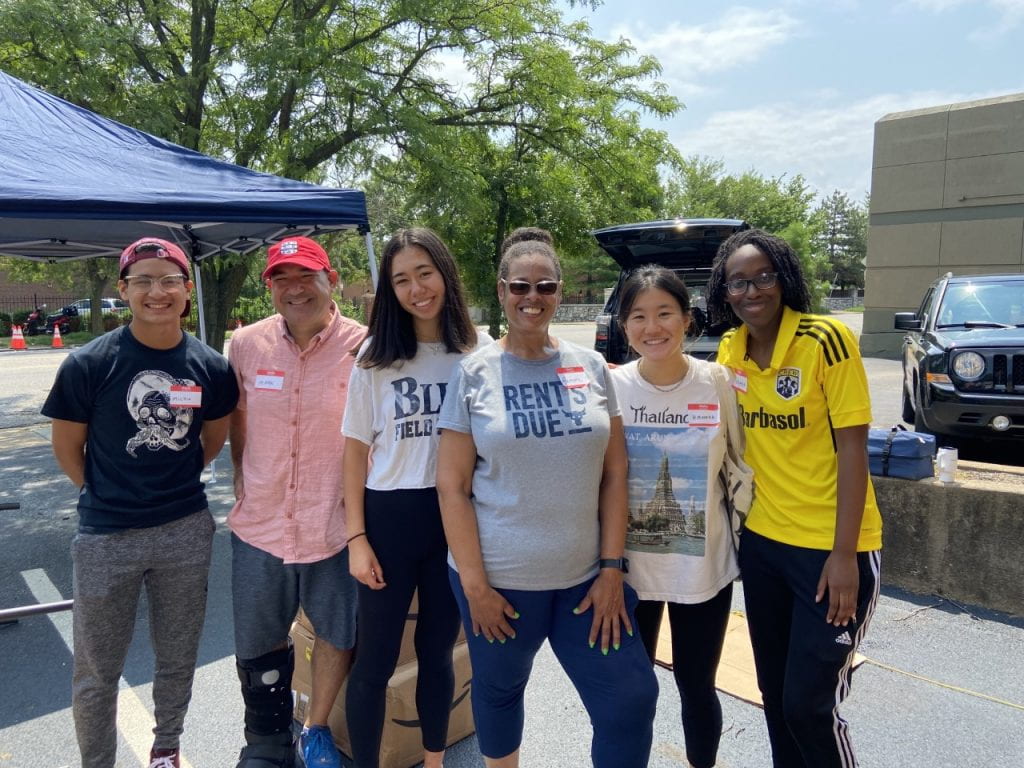
Sophia Dutton has quickly become an advocate for the unhoused population of St. Louis whilst being involved with and now serving as president of Heart for the Unhoused. This interest for the intersection between healthcare and helping the unhoused community was something she realized while in high school, holding an internship at Johns Hopkins hospital. When she recounts her time as an intern, Sophia distinctly remembers the sheer number of unhoused individuals not too far from the hospital, “I would often take the metro or walk to my internship and pass these people on street, and even though I did my best giving them a little bit of money or packs I prepared, I always felt there was a greater institutional disconnect between these amazing hubs of healthcare, and people on the street who were clearly suffering,”. These experiences sparked an interest in areas related to medical access and medical care of the unhoused population. So when Sophia finally made it to WashU’s campus and experienced the coveted rite of passage, a first year’s first activities fair, Heart for the Unhoused immediately stood out, “I was like, “This is exactly what I’ve been wanting to do,”, and so she joined the organization.
Sophia soon took on leadership roles in the club, and with it came her first independent project inspired by the information she had learned in the summer COVID-19 course. “When I realized that COVID-19 was affecting these unhoused individual’s ability to get vaccines, testing, and also in general, the pandemic increasing the size of the unhoused population, I thought that this might be a great way for our organization to go into the community and think about the ways we can help the unhoused community with COVID-19.” And with that, her COVID-19 project was born, as she initially worked on education and dialogue since “for someone in the unhoused community, lack of access to educational materials or even technology, can almost create an echo-chamber within the community with myths and things that aren’t true about COVID”.
Heart for the Unhoused members and Sophia worked to compile information from reliable sources, like the CDC, written in a way that was easy to understand in colorful informational packets. There was also a list at the end that included where people could get vaccinations or testing for free or at very low costs. Working alongside Unhoused STL, they handed out the informational packets as well as bags with a disposable mask, a reusable mask, and other things the unhoused individuals may need, taking every opportunity to engage in dialogue with unhoused individuals on COVID.

As their project has progressed, they have transitioned to the actual clinical setting working with Dr. Barbara Lutey, a doctor from Affinia Healthcare. Now, Sophia and a small cohort of students shadow Dr. Lutey and when they encounter a patient that is thinking of getting vaccinated, they can provide them with the guide that gets updated weekly, as well as help them sign up for vaccine appointments.
When looking back at her experiences starting this project, Sophia has a lot of wisdom to offer those looking to apply to the Community Partnership Mini Grant. First and foremost, Sophia emphasizes that the partnership must always come first in the project, “For anyone looking to start some kind of community project, the number one thing to do is talk to the community partner first, talk to people who have years of experience in the field that you are interested in because they are so passionate about it, they are so knowledgeable about, and most likely if you demonstrate interest in helping, they will be excited about that too. None of this would be possible, if it weren’t for the community partners that I have been working with since I first joined this organization,”.
As with any project, nothing can ever go exactly according to plan and embracing change was central to the COVID project succeeding. Especially since COVID was and continues to be an evolving issue, Sophia and her team were ready for any situation thrown at them. This came to be especially important for them when considering their timeline, so she encourages people looking to start a project to “keep in mind that your goal posts might change or shift around a bit depending on how your issue evolves and also depending on conversations you have with the community,”.
Upon reflecting on what makes a successful and worthwhile project, Sophia concludes that “passion and really knowing in your heart and your mind why you are doing this will just make the process, first of all, easy, and secondly, something that is genuinely impactful because it is coming from an internal source not something that is external,”.
To view the full transcript of the interview, click here.
If you are interested in applying to Heart for the Unhoused, applications for membership are accepted at the beginning of each semester. For any further questions about Heart for the Unhoused, please contact hh.wustl@gmail.com.